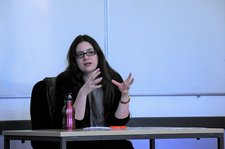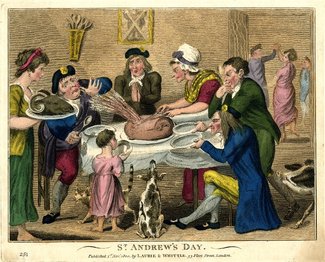
The question at the heart of this project is: Can the family be used as a category of analysis?, in much the way that race, gender and class have for humanities and social science scholars. It may seem that the answer to this question is no. Gender, race and class apply to large social groups that allow for significant variation between members, as well as similarities. The family is too small a unit. However, the family is the place where the characteristics of race, class, and gender are taught and realised for most people; it is in the family that variation, as well as similarity, is enabled; and it is through the family that people become individuals as well as part of the group. For these reasons, it is time for scholars to look more closely at the family, not only as a key site for the production of individuals, but as a lens through which we can explain broader patterns of behaviour, as a key variable that operates in intersection with gender, race, and class.
Katie Barclay was a EURIAS Fellow at AIAS from 2017-2018 and a Senior Research Fellow at the University of Adelaide, Australia. She is a historian of family life, gender and emotion, and has written widely in this area. She is currently editor of Emotions: History, Culture, Society, and completing a monograph on how to understand the collective emotions of eighteenth-century lower order Scots.
Project title:
What difference does family make? The family in society, Scotland 1650-1850
Area of research:
Gender, race and class
Fellowship period:
1 Oct 2017 – 31 Jul 2018
Fellowship type:
EURIAS fellow

This fellowship is initiated by NetIAS and has received funding from the European Union’s Seventh Framework Programme for research and innovation under the Marie Skłodowska-Curie grant agreement no 609400.


St. Andrews Day